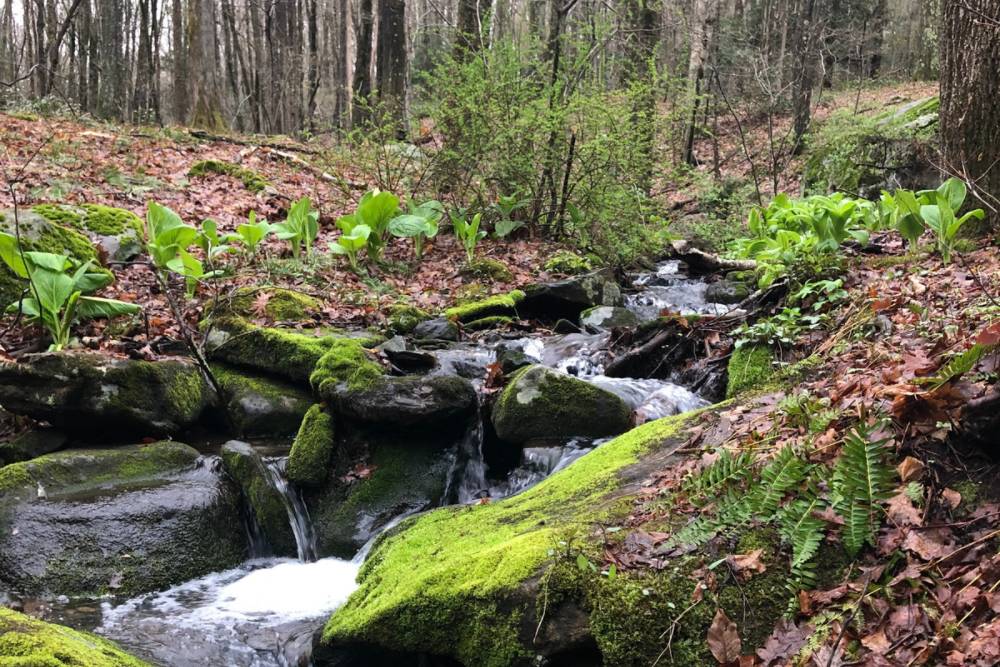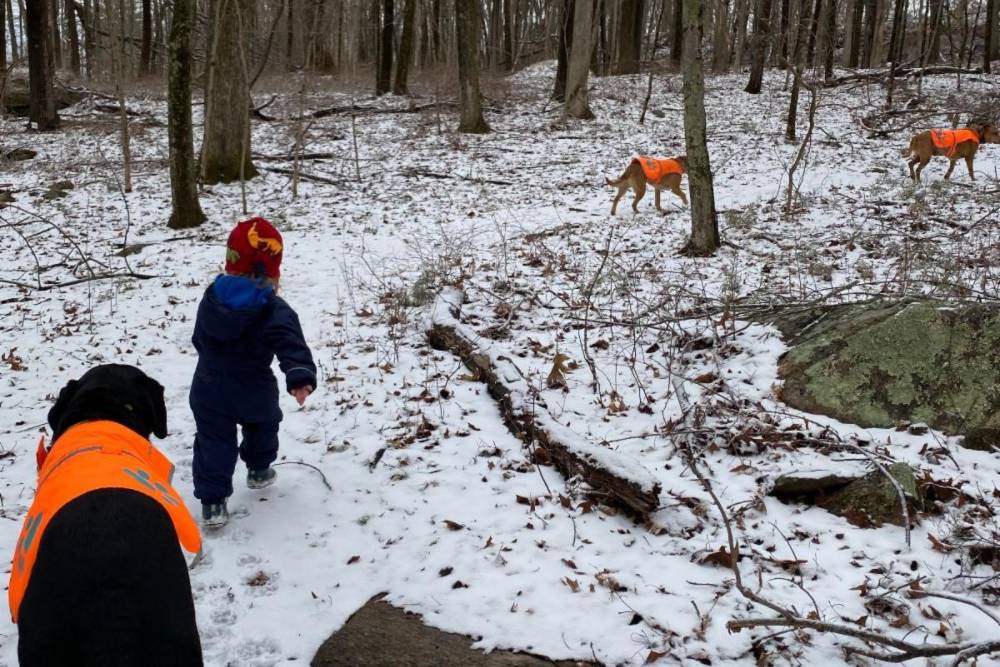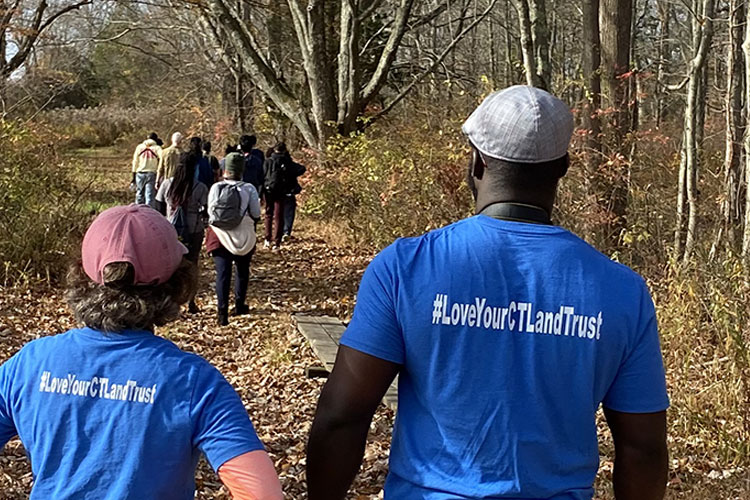News


I took this photo of my grandson and dogs a couple of weeks ago. We were in our yard, about 50 feet from my house. The photo perfectly captured the joy I was feeling in that moment in the outdoors.
So I posted it on our @CTConservation Instagram (IG) page.
Within minutes, I received an email from a CLCC IG follower sharing their experience of being knocked down by a dog while hiking and saying in part:
“I am an avid hiker and spend many hours on different trails around Connecticut. I love dogs, too, but not off leash on shared paths. By putting this very bucolic photo on your Instagram, it suggests that you encourage dogs to hike with their owners off leash. I feel it should not be encouraged.”
I thanked the writer for contacting me directly, explained that the picture was taken on private property, and told them I’d immediately take down the photo for the reasons they stated.
Everyone should feel safe and welcome in the outdoors and we need to recognize how different backgrounds, experiences, and even cultures may influence a person’s comfort level in nature.
In CLCC Advancement Initiatives – a series of dialogues around equitable land access, partnerships, and a shared vision for regional conservation – we talk about differing perceptions of “acceptable uses of the land”. Facilitated by equity trainers Ashley Stewart and David Sutherland, we have engaged deeply with land trusts on the importance of inviting new people and different perspectives into their organizations.
We believe that creating a welcoming outdoor environment for as many people as possible will help to strengthen and further our collective mission to conserve more land and build healthier communities. Land trusts are essential partners in that effort and are proving time and again that they are up for the challenge.
Spring is in the air. I hope you get outside and enjoy it!
![types] types]](https://ctconservation.org/wp-content/uploads/Amy-Blaymore-Paterson-with-Charlotte-Harriet-Josie-Credit-ABP.jpg)
P.S. Is your land trust interested in participating in a CLCC Advancement Initiative program? We’d love to hear from you! Please contact Rebecca to learn more about equity training for land trusts in your region.
Tags:

